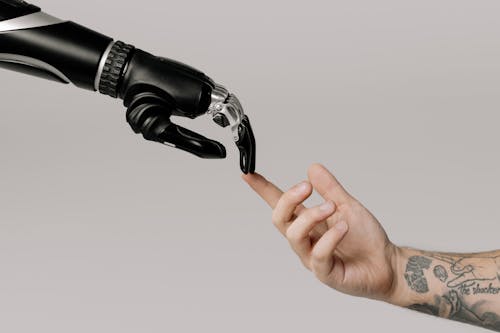In 2025, advancements in health technology are transforming the way we approach wellness and healthcare. From wearable devices to artificial intelligence (AI) and virtual reality, new innovations are making it easier than ever to monitor our health, improve our fitness, and enhance our overall well-being. This article explores the top health technologies that are changing the game and how they can help you lead a healthier, more vibrant life.
Wearable Health Devices
Wearable devices, such as smartwatches and fitness trackers, have become essential tools for monitoring various aspects of our health. These devices track things like heart rate, sleep patterns, physical activity, and even stress levels. Some devices, like the Apple Watch or Fitbit, offer real-time insights, helping users make more informed decisions about their health.
- Smartwatches and Fitness Trackers: These devices have advanced sensors that track your activity levels, monitor your heart rate, and even provide insights into your sleep quality. By wearing them daily, you can gain a deeper understanding of your overall health and make necessary adjustments to improve your lifestyle.

- Health Monitoring Patches: Another innovative wearable is health-monitoring patches, which can track things like glucose levels, hydration, and body temperature. These patches provide continuous health monitoring, alerting users to any potential issues before they become critical.
Artificial Intelligence in Healthcare
Artificial intelligence is rapidly transforming the healthcare landscape, helping doctors diagnose conditions more accurately and quickly. AI is now being used to analyze medical data, assist in patient care, and even offer personalized health recommendations.
- AI for Diagnosis and Treatment: AI-powered tools can analyze large volumes of data, such as medical images or patient history, to help doctors identify potential health conditions faster. These tools can also recommend treatment options tailored to individual patients, improving the quality of care.
- AI Health Assistants: Virtual health assistants, powered by AI, are now available to help users manage their health. These assistants can track your symptoms, suggest lifestyle changes, and provide reminders for medication or doctor’s appointments.

Telemedicine: Healthcare from Home
Telemedicine, or virtual healthcare, allows patients to consult with doctors remotely, making healthcare more accessible and convenient. In 2025, telemedicine platforms have become more advanced, offering high-quality care without the need to leave home.
- Remote Consultations: With telemedicine, patients can have video consultations with healthcare providers, saving time and avoiding unnecessary travel. This is especially beneficial for those who live in remote areas or have busy schedules.
- Virtual Physical Therapy: Physical therapy can now be done virtually through specialized apps and platforms that guide patients through rehabilitation exercises. This allows for greater flexibility, enabling patients to complete their therapy at home and receive real-time feedback from their therapists.
Health Apps and AI Integration
Mobile health apps are becoming increasingly popular, offering users the ability to track their health in real time. These apps integrate AI to provide personalized recommendations based on your unique health profile.
- Fitness and Wellness Apps: Many apps now help users track their exercise routines, monitor nutrition, and set wellness goals. AI-powered apps analyze data and suggest personalized workout plans, making it easier to stay on track with fitness objectives.
- Mental Health Apps: Mental well-being is just as important as physical health. AI-driven mental health apps help users manage stress, anxiety, and other emotional challenges. These apps offer guided meditation, breathing exercises, and mood tracking, helping users improve their mental health.
Virtual Reality (VR) in Healthcare
Virtual reality is not just for entertainment—it is becoming a valuable tool in healthcare, particularly in pain management, rehabilitation, and mental health therapy.
- VR for Pain Management: VR technology is being used to help manage chronic pain by immersing patients in virtual environments that distract them from their pain. This non-invasive treatment option is gaining popularity for its effectiveness in reducing the perception of pain.
- VR for Rehabilitation: VR is also being used in physical and cognitive rehabilitation. Patients recovering from injuries or surgeries can engage in interactive exercises that improve their physical function while being entertained in a virtual world.
Conclusion
Health technologies in 2025 are making it easier than ever to monitor and improve your health. Wearable devices, AI-powered health tools, telemedicine, and virtual reality are revolutionizing the way we approach wellness. These innovations not only make healthcare more accessible but also offer personalized solutions that cater to your unique health needs. By embracing these cutting-edge technologies, you can take control of your health and significantly improve your quality of life.



















